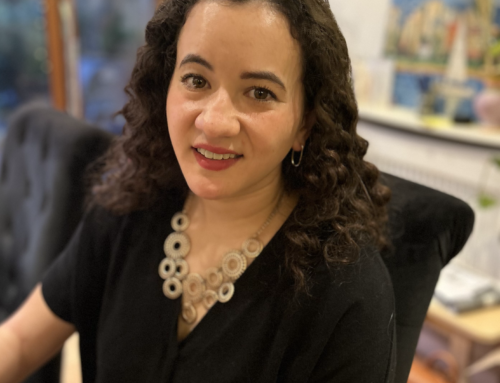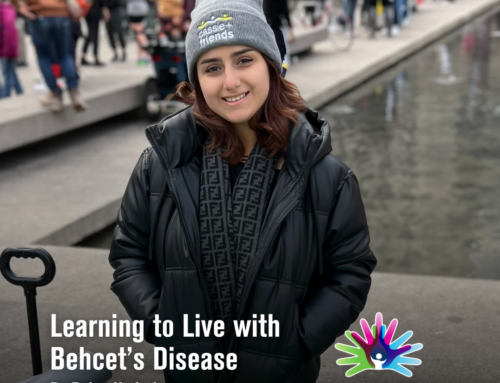My name is Maryse Hendi, I am 18 years old, and I was diagnosed with Systemic Lupus Erythematosus (SLE) when I was 10 years old.
What is SLE? More commonly known as Lupus, it is a disease in which the immune system is hyperactive and not only attacks disease-causing pathogens, but also the normal, healthy tissue in the body. Lupus can affect muscles, joints, and organs such as the kidneys, brain, etc.
All throughout my childhood, I would get unexplained stomach aches and muscle and joint pains, but they got really bad when I was 10. At 10, my pains became severe enough that I would have to miss school, which was very unusual for me. At first, no one was concerned about these pains and they were brushed off as growing pains. Eventually my family doctor thought something seemed strange and decided to run blood tests. I was then referred to the Rheumatology Clinic at the Alberta Children’s Hospital. 
What is living with Lupus like?
Whenever someone asks me what life with Lupus is like, I try to play it off like it isn’t as bad as it really is so I don’t get treated like I’m weak, or attention-seeking. In reality, living with Lupus presents many obstacles. I always feel like I have to work twice as hard as a healthy person to compensate for lost time due to my illness. For example, I often have to miss school due to flare ups of my disease, doctor’s appointments, or treatment sessions, and that leads to falling behind in schoolwork and getting isolated from friends. So, I have to find ways to problem solve and to keep up with life’s pace. Then there is the constant feeling of insecurity about my health. The feeling that, at any moment, something life changing, or life threatening could happen to me. Although I’ve had Lupus for most of my life, I’m still learning about myself, because every time I feel like I have an understanding of my illness, the rug is pulled out from underneath me. I could be fine one day and hospitalized with a flare up the next. Personally, a difficult aspect of having Lupus is thinking about the future. I frequently wonder if my physical health will interfere with my future plans, such as university or future employment.
What Have I Learned Through My Diagnosis?
- There is no such thing as “normal” in this world, we all have our battles.
- Be kind to yourself, even when your body is fighting against you (this can be easier said than done at times).
- Pace yourself, be gentle on your body.
- And most importantly, take your time. Although the world wants you to take things at a run, it’s entirely ok to take the time that you need to reach your goals.
So, How Can You Support Someone Diagnosed with Lupus?
- Be there for them even if they are not physically present: Being sick can feel isolating, so whether they are hospitalized or away for a day, let them know you’re there for them.
- Believe them when they say they are in pain/feeling unwell: To put it plainly, we gain nothing from lying to you. Implying that we are lying feels humiliating and invalidating.
- Be there to help, but don’t be imposing: We will sometimes need help with our daily tasks, but we still want to feel like independent people. Don’t forcefully help, you may be causing more harm than good.
- Lastly, ask what they need: every individual has different needs for support, and those needs can change at different times in their disease/life. Ask what the best way to support them is. After all, they are the expert in their body
Lupus Awareness Month means a lot to me, and I hope by sharing some of my experiences, you can get an insight into my life as a person with childhood Lupus. To learn more about lupus and Lupus Awareness Month please click here.










Leave A Comment